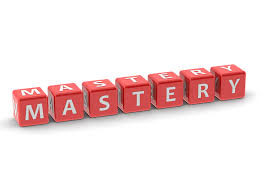An established fact is that, on average, the more undereducated and underemployed you are, the higher your psychological distress, including incidents of disabling mental health disorders. Why is this? The main reason is that undereducation and underemployment contribute heavily towards a low sense of self-mastery (Dalgard, et al., 2007), a basic human psychological need.
Basic Needs: We have all heard of and know about our basic physiological needs. We need air, warmth, water, food, and usually shelter and clothing. These basic human needs are well-known and well-understood. Nobody debates them. Yet many of us don’t know of our basic psychological needs. These are needs in that if they are withheld from us sufficiently, we will suffer greatly and in most cases either not develop properly as a child, or altogether die. According to Grawe (2007), there are four basic psychological needs:
- Attachment: A deep and enduring emotional bond that connects one person to another across time and space (Ainsworth, 1973).
- Control: Doing certain actions which are important for achieving personal goals—whether needs or wants, individual or universal.
- Self-esteem: an enduring sense of confidence in and worth of oneself.
- Pleasure: Positive and enjoyable experiences and the avoidance of negative or distressing experiences.
Self-Mastery: Control is the most primary of the psychological needs. This need explains why nobody wants to be a slave or in jail. A significant factor which can affect our sense of psychological control is our employability. This also has obvious impacts on our self-esteem. Together, this is called self-mastery: control over and confidence in a task or goal which leads to a positive self-worth.
Is Employment Enough? While being employed helps with a sense of self-mastery in that it can help satisfy your sense of accomplishment, increase your confidence and competence, and give you the ability to pay your way through life through your hard-earned income; employment alone is often not enough. Not all jobs are created equal and not all will fit you the same. Does your employment contribute enough to your sense of self-mastery? Are you challenged enough? Do you feel like the work you are doing is having an impact? These are good questions to ask yourself. If the answer is no, you may benefit from talking with someone about your future career direction.
Sited:

